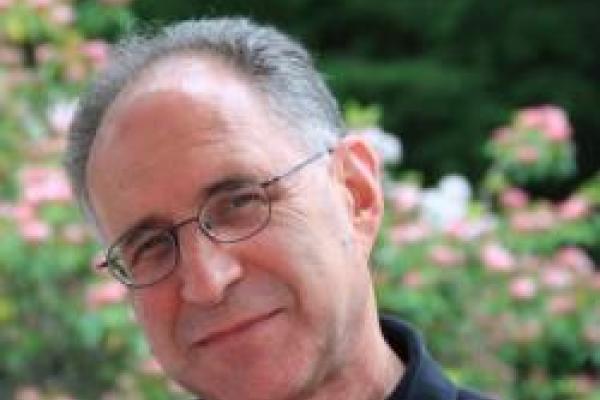Holub Named Ohio Eminent Scholar in German

Robert Holub is no stranger to Ohio State.
Holub, Ohio Eminent Scholar and Professor of German, is already quite at home in the Department of Germanic Languages and Literatures.
“I was here on campus in 1997 as a distinguished visiting professor, and at that time I found the campus very attractive,” he said.
The decision to return to Ohio State permanently was an easy one.
“I have great colleagues in the department. Three faculty members have PhDs from Berkeley and two of them wrote their dissertations with me. I consider the department to be one of the best in the country, and I hope I can contribute to making it even better,” Holub, who chaired the German department at Berkeley, from 1991-1997, said.
“Ohio State has great facilities for research; the combination of an outstanding department, a great university, and one of the premier positions in the country added up to a tremendous opportunity I couldn’t refuse.”
Department Chair Anna Grotans is extremely glad this was an offer he could not refuse.
“Professor Holub has had a large role in shaping the field of German Studies in North America, and we're excited to have him join us as our colleague,” she said.
“I have no doubt that he will be a strong advocate for the foreign languages and their importance in today's global university.
“Professor Holub has always been interdisciplinary in his scholarly approach and he will forge strong and fruitful ties across the arts and humanities, the college and the university at large.
“Additionally, he is a vibrant undergraduate instructor and has an excellent record as a graduate advisor. I hope that his graduate seminar on Nietzsche in the autumn will attract students from many departments.”
Holub is known for his scholarly work on 19th and 20th century intellectual, cultural and literary history. His focus is on Heinrich Heine, German realism, Friedrich Nietzsche, literary and aesthetic theory, Jürgen Habermas, and Vergangenheitsbewältigung, or “struggle to come to terms with the past.”
Currently, he is working on a project that puts Nietzsche’s thought in the context of social and scientific developments in nineteenth-century Europe.
Holub believes his new position, which he assumes autumn semester 2012, will allow him to advance that work.
“For the past two decades I have done an inordinate amount of academic administration,” Holub said.
“After spending so much time in administration, I felt it was time to get back to what first attracted me to academia: teaching and research.
“The Ohio Eminent Scholar position is one of the best positions in German Studies in the country, providing me with ample time and funding to devote to scholarly work. At the same time, it allows me to return to classroom instruction with undergraduate and graduate students.
“I look forward initially to continuing my research on Friedrich Nietzsche. I have about two-thirds of a book completed in my computer on Nietzsche and the social, political, and scientific discourses of the nineteenth century, and I am eager to do the remaining research and writing I need to finish the manuscript.”
Holub would like to contribute to Ohio State in other ways as well, “as a mentor to students and as a good citizen of the department, the college, and the university.”
Holub has praise for the Ohio Eminent Scholars Program. “In comparison to other states, Ohio seems to have recognized and continues to recognize the importance of higher education to the citizenry of the state. I appreciate that commitment and am proud to be associated with it.”
Created by the Ohio General Assembly and administered by the Ohio Board of Regents, the goal of the Ohio Eminent Scholars Program is to enhance the national eminence of selected outstanding academic programs at Ohio universities by attracting nationally-recognized scholars. It seems to be working very well.
Holub received his PhD from the University of Wisconsin-Madison in 1979. He taught in the German Department at the University of California, Berkeley, from 1979 until 2006, and chaired the department from 1991-1997. He was dean of the Undergraduate Division in the College of Letters and Science from 2003-2006. From 2006-08, he served as provost at the University of Tennessee, Knoxville, and from 2008-2012, he was chancellor of the Amherst campus of the University of Massachusetts.
